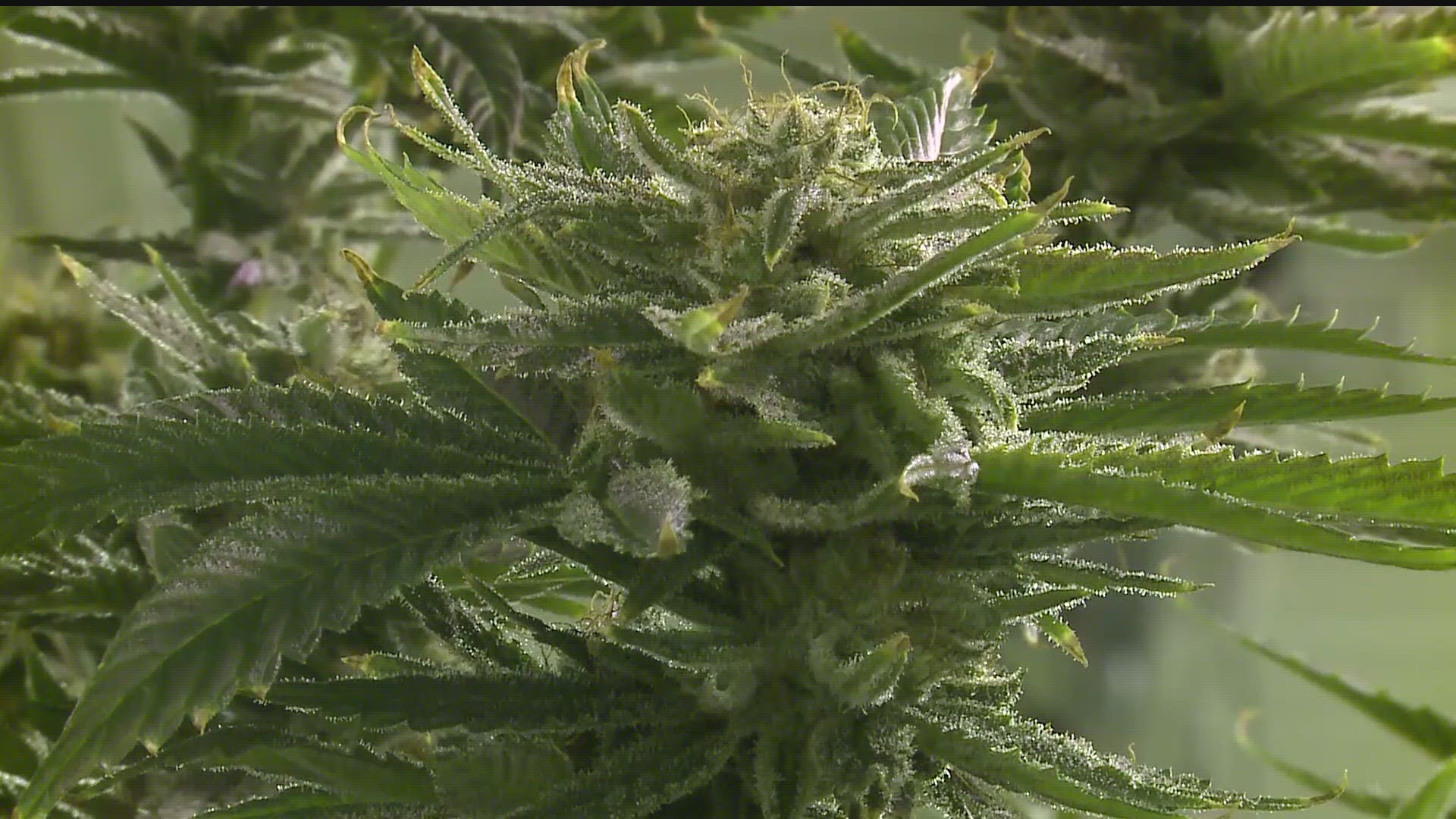ST PAUL, Minn. — The City of West Saint Paul Monday night passed a moratorium on new cannabis retail businesses until January of 2025.
That date coincides with the current timetable for the state's new Office of Cannabis Management to begin issuing licenses to cannabis retailers. The new recreational marijuana law bars cities from outright banning cannabis businesses, but cities can stall would-be retailers until those state licenses become a reality.
"Right now, people aren't coming in but they're asking a lot of questions about. 'When can we get up and running? Where are we going to be able to do this?' and I don't think cities have answers to that yet," Kyle Hartnett of the League of Minnesota Cities told KARE.
It's clear some would-be marijuana retailers want to set up their stores between now and January of 2025 in anticipation of gaining a state retail license.
"Even though they can’t get a license from the state yet, and technically can’t open, I think the moratorium is a way to just let the public know, 'Hey, we’re looking at the issue, we’re taking a pause.'"
The League has posted a handy online FAQ about the new law and what cities can and can't do to add extra layers of regulations. Hartnett said the new Office of Cannabis Management is expected to issue a model city ordinance so that cities don't have to start from scratch.
While the state will issue the retail licenses it will be up to cities to inspect and regulate the stores. The retailers will have to register with local cities and comply with local zoning rules, which may include setbacks — minimum distances from schools.
The City of Hopkins is taking a different approach with its temporary moratorium, which is on Tuesday night's city council agenda. Hopkins is starting with just a 90-day moratorium, assuming the council can adopt a set of rules across the next three months.
"We picked a shorter moratorium time for us to figure out what the regulations look like in our city," Hopkins Mayor Patrick Hanlon told KARE.
He said the city council generally supports the new cannabis law but wants some time to make sure the Hennepin County city of 19,000 can prepare.
"We just want to make sure it’s the right fit for Hopkins and to know what will come forward and what kind of control we have a local level. We want to still have an environment that's conducive for people that want to come in and provide that service and do it in a way that they're adequately regulated and can provide efficient service."
The City of Mankato passed a one-year moratorium on new cannabis businesses May 22. City leaders expressed the same desire to create a cooling off period while state and local regulations are being clarified.
The minimum number of cannabis retailers will be based on a town's population.
"Basically, it's one for every 12,500 people, but the intent was clear the legislature wanted at least one per city," Hartnett explained.
He said there will be a maximum number allowed per county, so a city can decline a cannabis retail store if that county has already reached the maximum.
Lawmakers intentionally barred cities and counties from banning legal cannabis products, in hopes of warding off black market sales in underserved areas.
Cities won't be allowed to tack on extra taxes on retail marijuana products, but they will get a share of the proceeds of the state's new 10% tax on cannabis products. That revenue will defray some of the cities' costs in regulating those stores.
That tax has already gone into effect for hemp-derived THC products being sold in Minnesota. Some cities also passed moratoriums against new THC stores last year, awaiting steps by the state to add more regulations.

